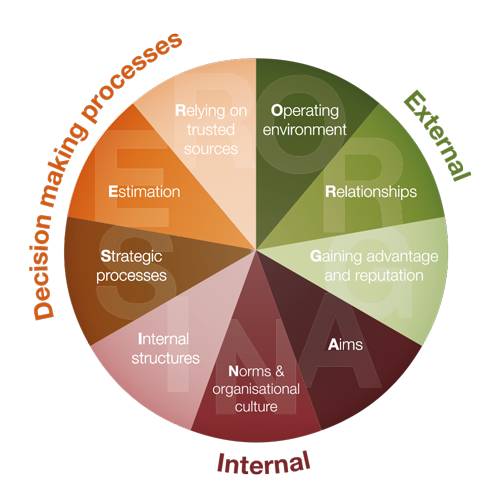Behavioural insights for Organisations
5 May 2016
Sally Wilson, IES Senior Research Fellow

In March 2016, the Cabinet Office published ORGANISER, an innovative tool based on detailed evidence gathered by the Institute for Employment Studies during an extensive Rapid Evidence Assessment [1]. The launch of 'ORGANISER' was marked by a high-profile event in Whitehall attended by over a hundred policy professionals across government.
The aims
The work builds on 'Nudge' [2], 'Mindspace' [3] and other tools currently used by government to understand how individuals make decisions. To date, this understanding has been used to encourage members of the public to make 'responsible' choices (eg to fill in their tax returns on time or pay into a government-approved pension scheme). ORGANISER (the clue is in the name) is specifically aimed at showing policymakers how to account for business and organisational behaviours in policy design. The basic idea is that this understanding has the potential to lead to more informed – and better value for money – policymaking across government.
The research
The new tool consists of an innovative set of behavioural insights (grouped under the mnemonic ORGANISER) that can be specifically applied to business and other organisations. An important priority for this crossgovernment project was to ensure that these were based on research evidence. IES's main task was to review a broad base of literature from the domains of behavioural economics, social and organisational psychology, management sciences (among others) and, from this, provide a detailed breakdown of behavioural drivers. In IES's report, (coauthored by a behavioural economics expert at the University of Nottingham) these are presented as 'cognitive', 'social' and 'cultural' factors.
The tool
The ORGANISER mnemonic was developed by IES's main partners on this project, Brook Lyndhurst. Upon completion of IES's review, Brook Lyndhurst's consultants worked with nearly 200 policy experts from across government and beyond to distil from the evidence a set of common themes and to derive key insights into organisational behaviour and decision-making. ORGANISER is the outcome of that process.

Each letter of ORGANISER is derived from the titles of each of nine 'common themes' that emerged from the evidence base.
Consideration of each theme helps to understand why organisations behave the way they do, and to begin to identify ways of influencing that behaviour.
The common themes, as shown in the diagram, fall into three groups:
- those in green refer to behavioural factors which are external to an organisation
- those in red refer to behavioural factors which are internal to an organisation
- those in orange refer to the decision-making processes within an organisation.
The full version of the ORGANISER tool, available online [4], presents definitions, questions, links to useful information and suggestions for action.
The material supports policymakers at any point in the policy cycle, helping them to adopt a behavioural perspective on organisations and to avoid making assumptions that are not based on evidence about how organisations behave.
Examples are also provided, illustrating how policies across a wide range of areas have benefited from adopting a behavioural perspective on organisations.
ORGANISER is a resource that will support innovation in policymaking and the creation of further examples and evidence in the future. As such, it is a living resource and it is hoped that all those using it (in government and beyond) and testing it (either in experimental or real-life settings) will contribute to its ongoing development and application.
Footnotes
[2] http://www.amazon.co.uk/Nudge-Improving-Decisions-Health-Happiness/dp/0141040017





